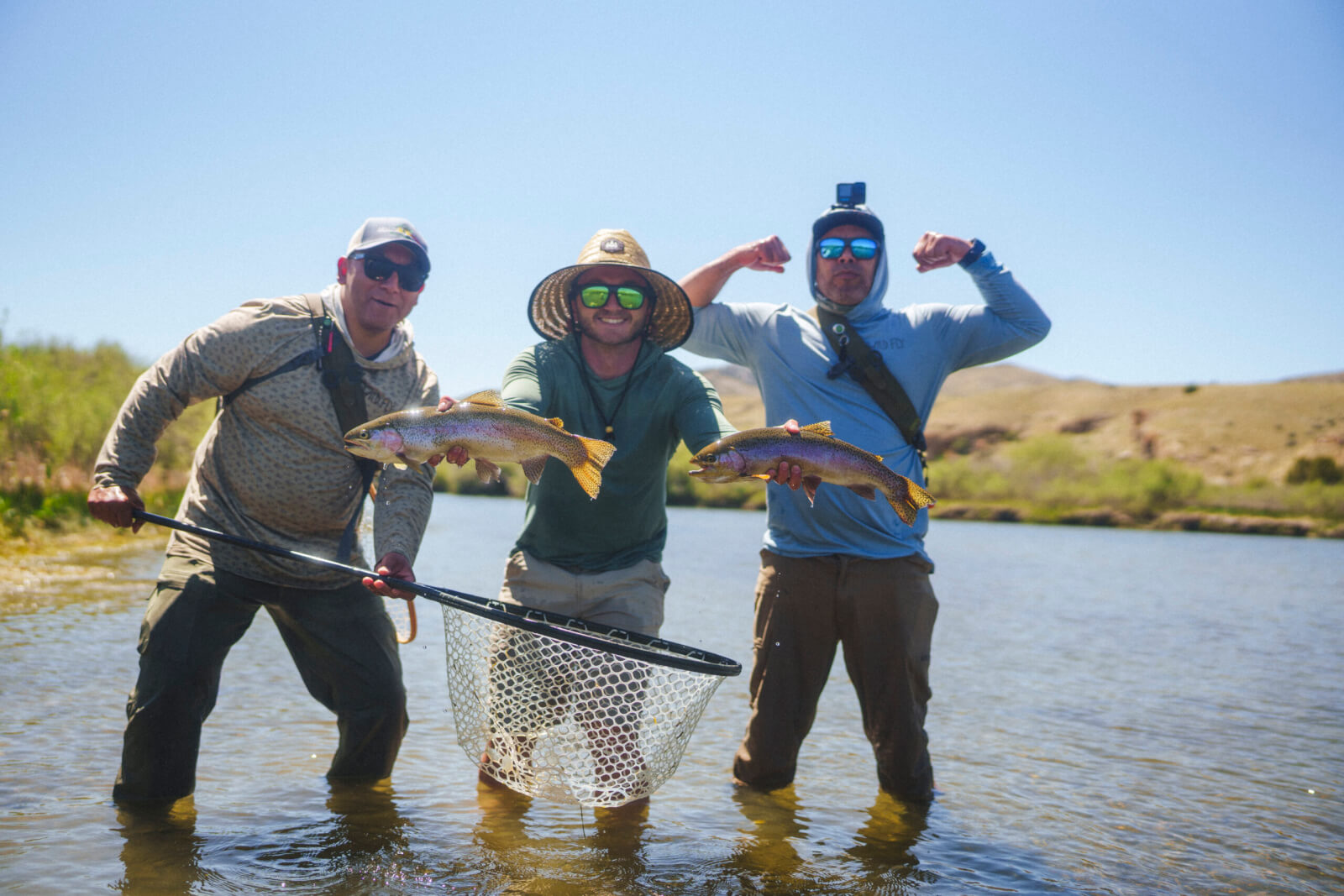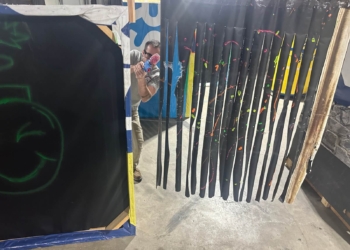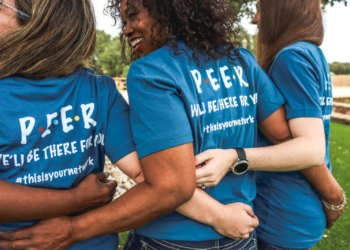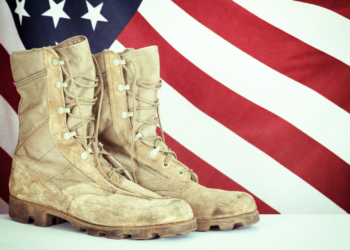Cameron Cushman’s 3-year-old daughter asked him every day to take her to the park. He always told her no. Then one day, she stopped asking.
“I felt like a piece of crap for that,” said Cushman, an Army veteran who was medically retired in 2016. “And so me and my wife had a lot of long, hard conversations for weeks about, ‘Hey, how do I fix this? How do I turn this around?’”
A big part of the solution was returning to the outdoors. He started fly fishing with a few friends, and in addition to catching fish, he found healing on Devils River in Texas.
“Fly fishing saved my life. There’s no question there,” Cushman said. “It got me back outside … my kids, obviously, were the stepping stone for why I needed to fly fish to find my healing.”
His story is one of several that can be found among the veterans and service members who are involved with Project Healing Waters.
Established in 2005 at Walter Reed National Military Medical Center, the outdoor-therapy nonprofit has grown into a nationwide organization that helps veterans and service members through fly fishing.
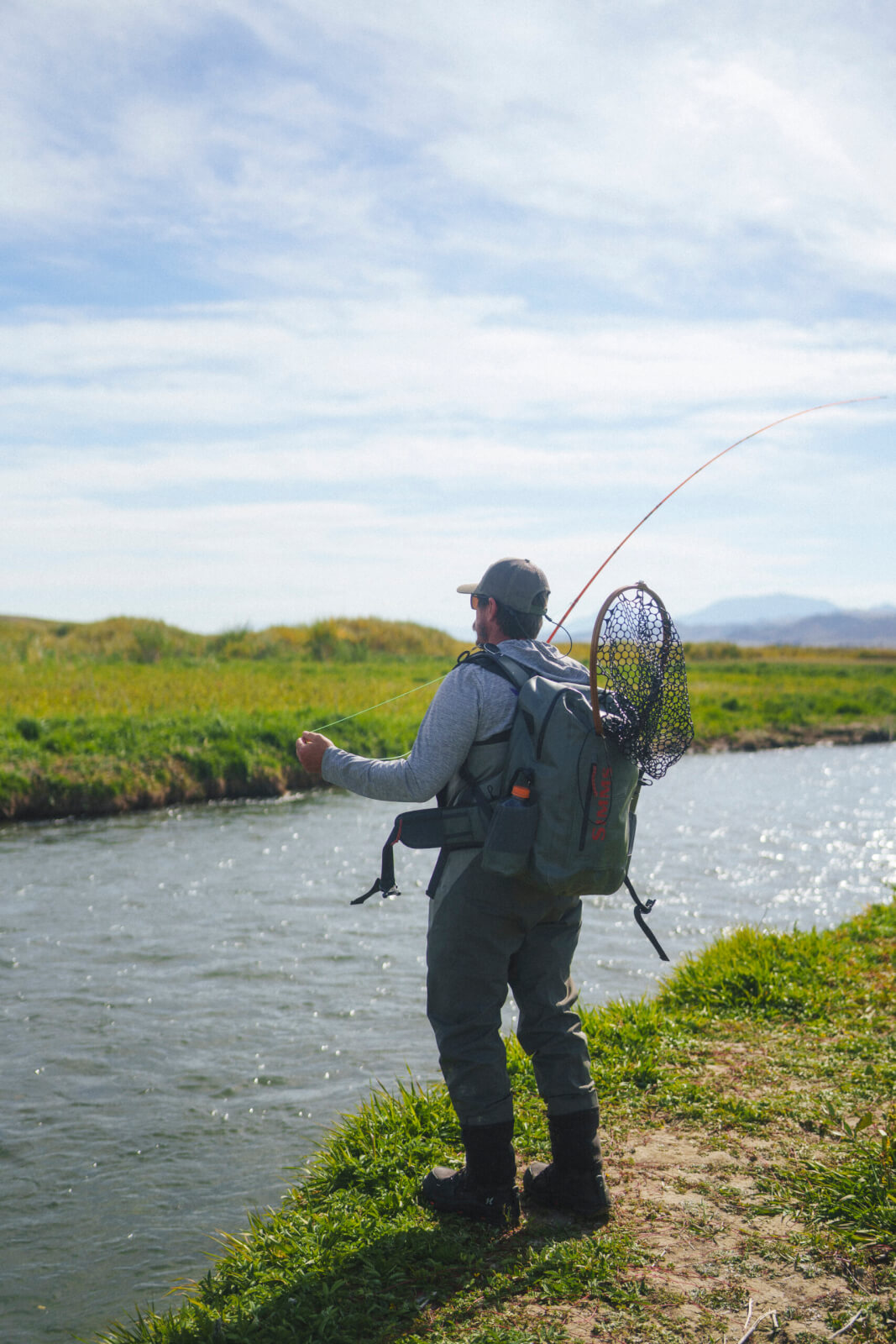
“People don’t realize that you can fly fish in every state,” said Cushman, who served as an infantryman from 2010 to 2016. “There is not a single state — there’s not a place on earth — that you can’t fly fish. You can fly fish for sharks, you can fly fish for bass, you can fly fish for trout, right? And trout are the pinnacle of what everyone thinks about fly fishing. But, you know, while fly fishing is like what I like to call the sexy factor, the cool factor that brings people in, that healing power that is outdoors is really truly in the outdoors.”
Two studies that have used Project Healing Waters participants as their focus group found that fly fishing had a positive effect on service members and veterans with a PTSD diagnosis. One of those — a joint effort between the University of New Hampshire and the Boise Veterans Affairs Medical Center — found evidence that fly fishing could provide a reprieve from the negative impacts of PTSD and alleviate related symptoms, among other benefits.
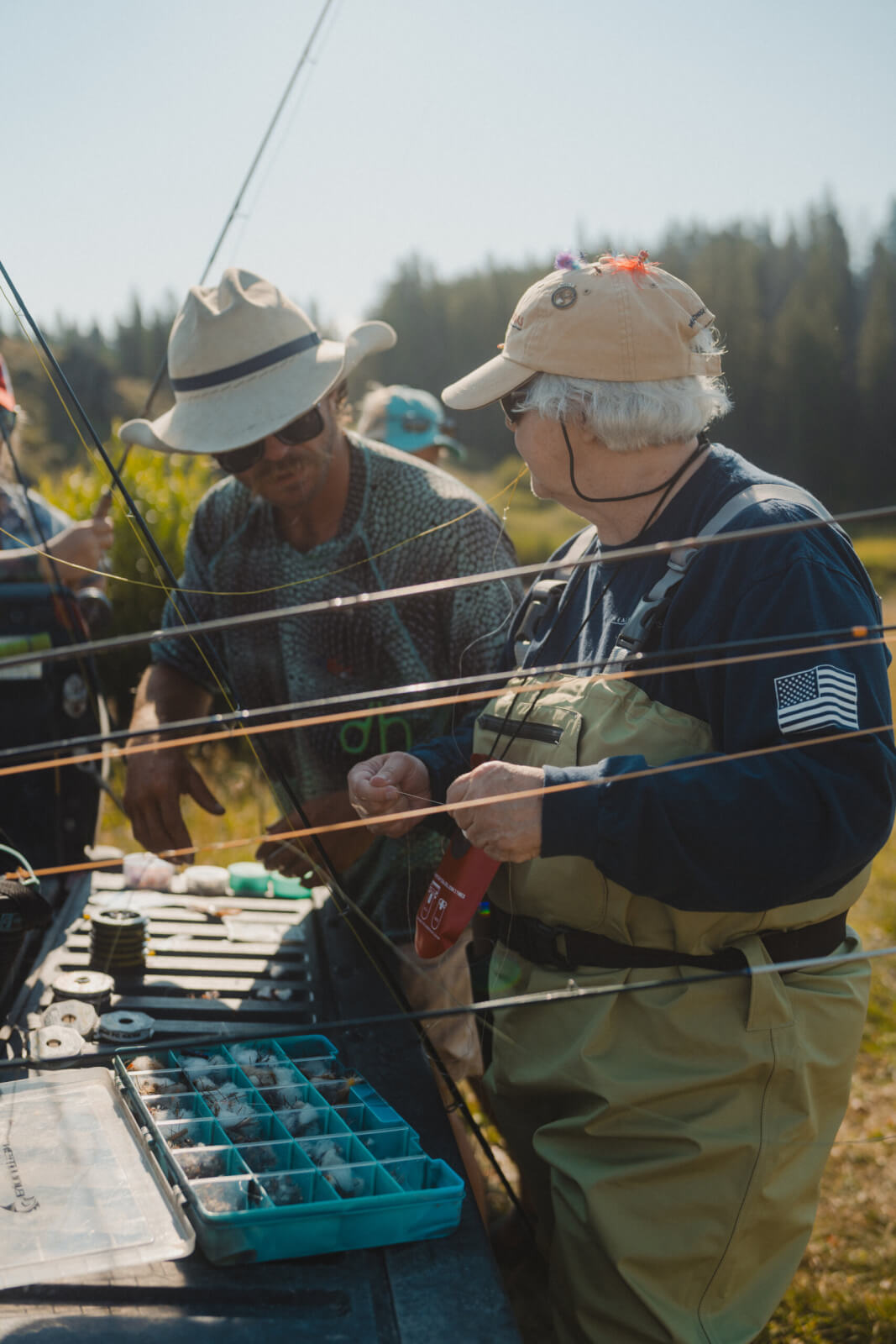
Finding peace in Healing Waters
Initially, Cushman said, he didn’t want anything to do with the military community after he left service. But a friend he went fly fishing with, who happened to be a veteran, mentioned Project Healing Waters needed volunteers for a tournament.
Cushman helped in a one-off capacity but wasn’t quite ready to get involved in the veteran community. A few years later, he began working with another nonprofit but “naturally” gravitated back to Project Healing Waters. Since then, he has been the man behind social media and marketing for the group.
Mike Cather, vice president of development for Project Healing Waters, said it’s “not terribly atypical” for veteran participants to evolve into volunteers for the group.
“We have volunteers who have been with the organization for 15, 16 years and their commitment and dedication to what we do locally, where the mission impacts veterans and communities around the country, has really been remarkable,” Cather said.
According to Cather, there are about 3,600 active volunteers who make sure programs happen on a weekly basis in their communities.
And those programs are where the “magic happens,” Cushman said.
For his part, Cushman has seen program participants step away from the group to just sit with nature.
“[There are] hundreds and hundreds of people that have just said how fly fishing in the community has changed their lives,” he explained. “And that they met their best friend through the organization … and if they hadn’t met them, they don’t know if they’d still be here.”
In 2023, Project Healing Waters launched Women on the Fly, a female-specific initiative spearheaded by women veterans on staff. Cather said they’d ideally like to see each of the organization’s 167 programs have a subset of the initiative.
For more information, visit the Project Healing Waters website.
Read comments

